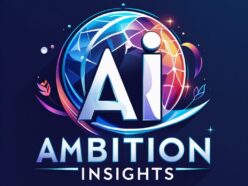Did you know that by 2025, the global AI market is expected to reach a staggering $190 billion? That’s more than the GDP of some countries! As we stand on the brink of an AI revolution, it’s time to dive into what the future holds for this fascinating technology. Buckle up, because the ride is going to be wild!
The Rise of AI in Everyday Life
Imagine waking up to a world where your coffee brews itself, your car drives you to work, and your virtual assistant knows your schedule better than you do. Sounds like a sci-fi movie, right? But this is the reality we’re heading towards. AI is already infiltrating our daily lives in ways we often overlook. Here are some surprising examples:
- Smart Home Devices: From thermostats that learn your preferences to security systems that recognize faces, AI is making homes smarter.
- Healthcare Innovations: AI algorithms can analyze medical images faster than radiologists, leading to quicker diagnoses.
- Personalized Shopping: E-commerce platforms use AI to recommend products based on your browsing history, making shopping feel like a tailored experience.
These advancements are just the tip of the iceberg. As AI continues to evolve, it will become even more integrated into our lives, making mundane tasks a breeze. ☕
The Workforce Transformation
Now, let’s talk about the elephant in the room: job displacement. Many fear that AI will take over jobs, leaving humans in the dust. While it’s true that some roles may vanish, others will emerge. Think of AI as a tool that enhances human capabilities rather than replaces them. Here’s how:
- New Job Creation: AI will create jobs in fields like data analysis, AI ethics, and machine learning engineering.
- Augmented Roles: Professionals in various sectors will use AI to improve efficiency. For instance, marketers can analyze consumer data to craft better campaigns.
- Reskilling Opportunities: Companies will invest in training programs to help employees adapt to new technologies.
In essence, AI will shift the job landscape, but it won’t eliminate the need for human creativity and emotional intelligence. 🚀
Ethical Considerations and Challenges
As we embrace AI, we must also confront ethical dilemmas. Who is responsible when an AI makes a mistake? What about privacy concerns? These questions are crucial as we navigate the future. Here are some key issues to consider:
- Bias in AI: Algorithms can perpetuate existing biases if not carefully monitored. This can lead to unfair treatment in areas like hiring and law enforcement.
- Data Privacy: With AI collecting vast amounts of data, individuals must be aware of how their information is used and protected.
- Accountability: Establishing clear guidelines on who is liable for AI decisions is essential to prevent misuse.
Addressing these challenges will require collaboration between technologists, ethicists, and policymakers. ⚠️
The Role of AI in Sustainability
AI isn’t just about convenience; it can also play a pivotal role in tackling global challenges like climate change. Here’s how:
- Energy Efficiency: AI can optimize energy consumption in buildings, reducing waste and lowering costs.
- Predictive Analytics: Farmers can use AI to predict crop yields and manage resources more effectively, leading to sustainable agriculture.
- Smart Grids: AI can help manage electricity distribution, integrating renewable energy sources more efficiently.
By harnessing AI for sustainability, we can create a greener future while reaping economic benefits. 🌍
Conclusion
The future of AI is bright, filled with opportunities and challenges. As we integrate AI into our lives, we must remain vigilant about ethical considerations and strive for a balance between innovation and responsibility. Embrace the change, stay informed, and be part of the conversation. The AI revolution is here, and it’s up to us to shape its trajectory! 🚀


